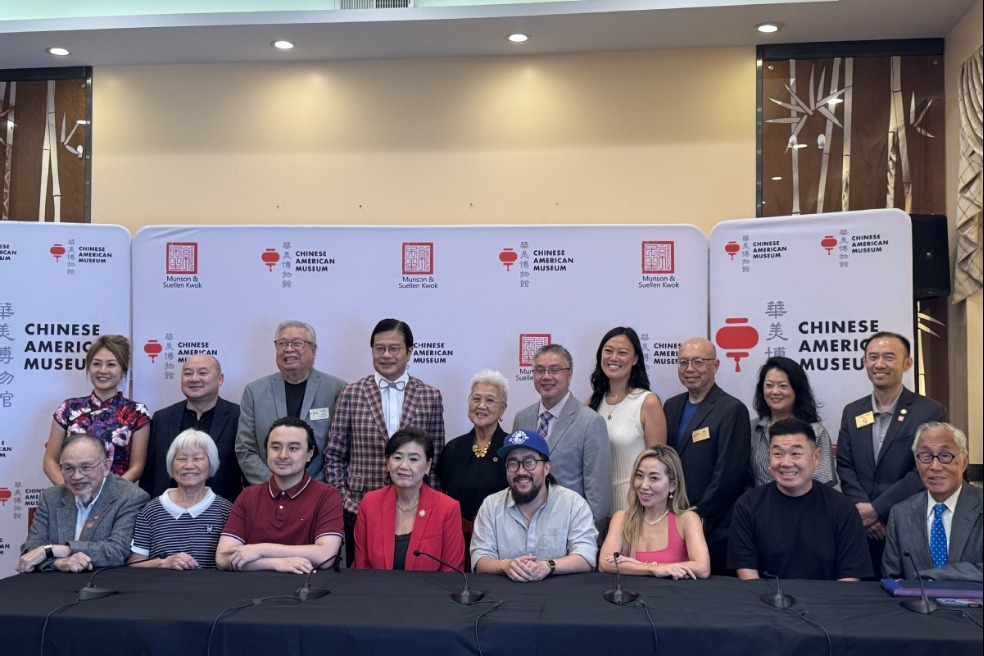Stronger cultural ties will unleash full potential of China-Africa cooperation


A deep appreciation of China's multifaceted development track record and Beijing's footprints in helping Africa to shake off colonial entanglements continue to inform Africa's long-standing affinity toward China.
For its part, China values the support of Africa in affirming its national interest at home and abroad. Fundamentally, both sides have found viable business partnerships in each other and together constitute nearly 40 percent of the global market. These historical and contemporary anchors remain wellsprings of cooperation between China and Africa.
On the flip side, the expansive distance and different languages and political systems have contributed to the slowed pace of ideological and cultural integration of African countries and China.
To fashion a new China-Africa cooperation fit for the 21st century, concerted efforts by both sides should be harnessed to cultivate cordial relations among the people, beyond governmental relations. When people interact, they achieve mutual understanding and reinforce favorable perceptions of each other. Close contacts also promote sincerity, affinity and good faith while stimulating friendship, justice and shared interests.
Significant amounts of goodwill and precedents are already underway. Speaking in Tanzania in March 2013 during his first visit to Africa as president, Xi Jinping pointed out that cultural and people-to-people exchanges were the pillars on which to build lasting Sino-African ties. At the 2015 Forum on China-Africa Cooperation Summit in South Africa, people-to-people exchanges were listed among the 10 major plans to anchor ties between Beijing and different African capitals.
China is now the choice destination for Africans seeking higher education abroad. In addition, the Africa cultural visitors' program has since 2006 provided a platform for direct exchanges between the Chinese and African peoples. Alongside the increase in Chinese investments in the continent, Africans are increasingly investing in China, leading to a growing African-Chinese diaspora, while cities' twinning programs have seen over 1 million Chinese tourists visit Africa each year.
Even more striking are the China-Africa Press Exchange Centre programs and capacity-building seminars. In 2018, I was fortunate enough to be a participant in the seminars, in which the story of China unfolded right before my eyes. I had an opportunity to see the results of poverty-reduction programs in rural areas of the Inner Mongolia autonomous region. It was a practical experience and in many ways helped to explain some of the nuances in popular media about China.
As a graduate student in China, I also met many young Chinese nationals who were interested in the deepening relations with Africa and wanted to be part of the discourse. Because of their energy, talent and curiosity, young people occupy a uniquely important space in Sino-African ties. They can easily acquire a second language, they are not afraid to love those who do not look like them, and they form the bedrock of the modern innovation value chain.
When Chinese technology companies like Huawei stage tech competitions for university students in Africa, better relations are forged. This is also true when exceptional Kenyan talent is given opportunities to visit and learn about new Chinese technologies in agriculture, energy, railway construction, e-commerce and smart cities, among other areas.
Equally, when young Chinese visit Nairobi on a wildlife conservation mission, they also get to sample what Kenya has to offer. They make friends and form lasting bonds. As more African capitals welcome Confucius Institutes, so should more Chinese universities be open to teaching African studies, including languages.
The private sector and nongovernmental organizations are strong platforms for collaboration and can further cement the relations between China and Africa. Additional culturally themed events, like the Youth International Exchange of Kenya-China Tea Festival that was recently staged in Beijing, should be rolled out in order to reach more young people.
While the COVID-19 pandemic has deeply affected in-person contact and cultural exchanges in general, young people can still leverage technology to interact and further FOCAC objectives on people-to-people exchanges.
The author is an international relations researcher with a focus on China-Africa ties. The views do not necessarily reflect those of China Daily.

































